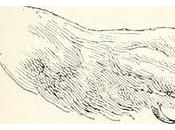
La ricerca della felicità sembra essere uno dei nostri obbiettivi che portano diretti all'insoddisfazione del proprio vivere anche perchè a volte non sappiamo nemmeno che cosa possa rappresentare davvero la felicità.
E' uno stato d'animo, un diritto sancito dalla nostra Costituzione, un equilibrio "di grazia" sul quale da secoli si interrogano filosofi, sociologi, psicologi e pensatori. Di sicuro, ognuno ha una sua ricetta per raggiungerla e ci sono alcuni che ne "possiedono" più di altri. Sulla felicità e sulla scelta di quello che serve per raggiungerla è stato ora realizzato un sondaggio che ha coinvolto 18mila donne europee le quali hanno indicato come ingrediente fondamentale gli affetti, seguiti da un buon equilibrio tra lati professionali e personali e, a sorpresa, il mare come location per vivere al meglio.
L'indagine paneuropea è stata realizzata da aufeminin, editore numero uno al mondo di siti internet dedicati al target femminile, su un campione di utenti donne (target prevalentemente urbano, di età compresa tra i 25-49 anni), delle declinazioni francese, inglese, italiana, spagnola e tedesca dei siti del Gruppo. Le più felici in assoluto sono risultate le francesi. In un frangente storico come quello in cui stiamo vivendo, alla domanda "quanto sei felice in questo momento?" solo le connazionali di Sarkozy (3 su 4) si sono dette davvero contente: mentre le italiane (42%) e le inglesi (34%) hanno risposto cautamente "abbastanza felici". Le spagnole sono risultate in piena crisi, mentre le tedesche guardano al futuro.
In Italia, il 64% delle donne intervistate ha indicato che la felicità si riassume in uno stato d’animo, ma che si tratta comunque di un fatto reale e pratico, ben diverso sia da un’utopia (5%) sia da una ricerca spirituale (12%). Dello stesso avviso sono le francesi, mentre il 61% delle tedesche identifica la felicità con i momenti di puro piacere. Più nel dettaglio, le donne italiane associano la loro felicità personale a una vita sentimentale appagante (41%), a una famiglia unita (15%) e sono piuttosto compatte nel dire che essere felici vuol dire ‘amare ed essere amate’ (47%). Per essere felici occorre poi godersi la vita (26%) e conoscere le proprie radici e la propria storia (11%). Lo stesso bisogno di appartenenza è stato espresso dal 16% delle donne tedesche.
Le intervistate di ogni paese sono poi d’accordo (37%) nell’affermare che l'ingrediente fondamentale della felicità della vita in coppia si basa sulla complicità e sulla capacità di ridere e condividere qualsiasi cosa in due, sull’avere dei progetti comuni e voglia di crescere insieme (24%) e sulla capacità di comunicazione e condivisione di problemi e dubbi (22%). A sorpresa, invece, l’intesa sessuale rappresenta solo per il 3% delle donne ciò che rende una coppia davvero felice ed appagata. Le spagnole, addirittura, ritengono ancora meno significativo il sesso nel raggiungimento della felicità a due (solo l’1%). La peggior minaccia di una vita di coppia appagante è invece la routine (33%).
Per quanto riguarda il lavoro, le italiane si dividono in quote quasi equivalenti: il 25% sostiene che la cosa più importante è avere un lavoro che lasci del tempo libero, il 21% afferma che è fondamentale avere delle responsabilità che valorizzino la propria persona e il 20% dichiara, da una parte, che è essenziale un ambiente simpatico e piacevole e, dall’altra, che è necessario avere possibilità di crescita. Non è invece prioritario un ottimo stipendio, né per le italiane né per il resto delle europee.
Ma gli ingredienti della felicità più sorprendenti dell'indagine sono stati individuati in sole e mare. Oltre il 40% delle europee pensa che vivere in un luogo marino renda la vita quotidiana più serena e soddisfacente. Quasi il 50% delle italiane, in particolare, vorrebbe vivere nei pressi di località balneari, mentre le supporter della vita urbana sono il 20%. Minore appeal invece ha la montagna, indicata solo dal 5% del campione. Il bel tempo ha ottenuto invece un consenso plebiscitario in tutti i Paesi: il 75% delle intervistate è sicuro nell’affermare che si sente molto più serena quando c’è il sole!
Buona Ricerca.
Roberto
The pursuit of happiness seems to be one of our goals that lead directly to the dissatisfaction with his life also because sometimes we do not know what can really be happy.
E 'state of mind, a right guaranteed by our Constitution, a balance of "grace" in which for centuries wonder philosophers, sociologists, psychologists and philosophers. Sure, each has its own recipe to get there and there are some who "owns" more than others. On happiness and choice of what it takes to reach it has now produced a survey which involved 18 thousand European women, who have shown affection as a key ingredient, followed by a good balance between professional and personal sides and, surprisingly, the sea as the best location to live.
The pan-European survey was carried out by aufeminin, the world's leading publisher of Internet sites dedicated to the female target, a sample of female users (target predominantly urban, aged between 25-49 years), of variations in French, English , Italian, Spanish and German sites of the Group. The happiest of all are found to the French. In a historical juncture as one in which we live, the question "Are you happy now?" Only nationals of Sarkozy (3 of 4) said they were really happy: while the Italian (42%) and British (34%) responded cautiously "fairly happy". The Spanish were in crisis, while the Germans are looking to the future.
In Italy, 64% of women surveyed indicated that happiness can be summed up in a state of mind, but it is still a real and practical, is very different from a utopia (5%) and by a research spiritual (12%). The same opinion are the French, while 61% of German identifies happiness with moments of pure pleasure. More specifically, the Italian women associate their personal happiness in a satisfying love life (41%), a family united (15%) and are quite compact in saying that being happy means 'to love and be loved' (47% ). To be happy then need to enjoy life (26%) and to know their roots and history (11%). The same need for belonging was expressed by 16% of German women.
Respondents in each country were then agreed (37%) affirm that the essential ingredient of happiness of life as a couple is based on the complicity and the ability to laugh and share anything in two, on having joint projects and desire to grow together (24%) and the ability to communicate and share problems and concerns (22%). Surprisingly, however, the physical relationship represents only 3% of women that makes a couple really happy and satisfied. The Spanish even feel even less significant sex in the pursuit of happiness to two (only 1%). The worst threat of a couple's life is rewarding rather routine (33%).
As for work, Italian shares are divided into roughly equal: 25% believe that the most important thing is to have a work that leaves some free time, 21% say that it is essential to have responsibilities that enhance their individual and 20% said the one hand, it is essential to a friendly, pleasant and, secondly, that you need to have opportunities for growth. It is not a priority a great salary, neither the Italian nor the rest of Europe.
But the ingredients of happiness the most surprising of the survey were identified in the sun and sea. Over 40% of Europeans think that living in a marine makes everyday life more peaceful and satisfying. Almost 50% of Italian women, in particular, would want to live close to seaside resorts, while the supporters of urban life are 20%. Less appealing was the mountain instead, indicated only 5% of the sample. The weather has been rather a consensus plebiscite in all countries: 75% of the respondents is safe in saying that he feels much happier when the sun is shining!
Good research.
Roberto






